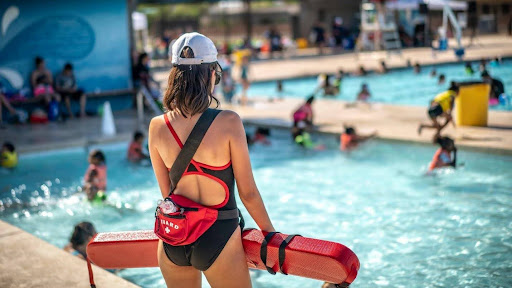Lifeguarding is a crucial profession dedicated to ensuring the safety and well-being of individuals at aquatic facilities, including pools, beaches, and water parks. Lifeguards are trained to respond swiftly and effectively to emergencies, providing assistance to swimmers in distress and implementing preventive measures to avoid accidents.
Understanding Lifeguard Certification
Lifeguard certification is a formal process that validates an individual’s ability to perform lifeguard duties competently. It involves comprehensive training in water rescue techniques, first aid, CPR (Cardiopulmonary Resuscitation), and AED (Automated External Defibrillator) usage.
Importance of Lifeguard Certification
Certification ensures that lifeguards possess the necessary skills and knowledge to handle emergency situations efficiently. It instills confidence in both the lifeguards and the public, reassuring swimmers that trained professionals are present to maintain a safe environment.
Requirements for Lifeguard Certification
To pursue lifeguard certification, candidates must meet certain prerequisites, including minimum age requirements, swimming proficiency tests, and completion of prerequisite courses such as CPR and First Aid.
Choosing a Certification Program
There are various organizations offering lifeguard certification programs, each with its own curriculum and requirements. It’s essential to select a reputable program recognized by industry standards, such as the American Lifeguard Association (ALA).
Process of Getting Lifeguard Certification
Preparing for the Certification
Before enrolling in a certification course, candidates should ensure they meet all prerequisites and adequately prepare physically and mentally for the rigorous training ahead.
Taking the Certification Course
The certification course typically consists of classroom instruction and hands-on training in lifeguarding techniques, including rescue procedures, surveillance, and communication skills.
Passing the Certification Exam
Upon completing the training, candidates must pass a comprehensive exam assessing their knowledge and practical skills in lifeguarding, CPR, and first aid.
Types of Lifeguard Certifications
Lifeguard certifications may vary based on the specific environment, such as pool lifeguard, beach lifeguard, or water park lifeguard. Each certification may require additional training tailored to the unique challenges of the setting.
Renewal and Recertification
Lifeguard certifications usually have an expiration date, requiring lifeguards to undergo regular renewal or recertification to ensure they maintain updated skills and knowledge.
Benefits of Lifeguard Certification
Apart from the rewarding experience of safeguarding lives, lifeguard certification near me offers numerous benefits, including job opportunities, professional development, and personal growth.
Career Opportunities for Certified Lifeguards
Certified lifeguards can pursue careers in various settings, including public pools, private resorts, community centers, and aquatic facilities, with opportunities for advancement into supervisory or management roles.
Safety Responsibilities of Certified Lifeguards
Certified lifeguards have a duty to enforce safety rules, conduct regular surveillance of the aquatic area, respond promptly to emergencies, and communicate effectively with patrons and colleagues.
Importance of Continuous Training
Continuous training and professional development are essential for lifeguards to stay updated on the latest rescue techniques, emergency protocols, and safety standards, ensuring they remain competent and effective in their role.
FAQs about Lifeguard Certification
Q: Is lifeguard certification necessary for employment?
A: Yes, most employers require lifeguards to hold a valid certification from a recognized organization.
Q: Can I renew my lifeguard certification if it has expired?
A: Yes, you can typically renew your certification by completing a recertification course before the expiration date.
Q: Are there age requirements for lifeguard certification?
A: Yes, candidates must usually be at least 15 or 16 years old to pursue lifeguard certification, depending on the program.
Q: How long does lifeguard certification training take?
A: The duration of training varies depending on the program, but it typically ranges from 20 to 40 hours.
Q: Can I use my lifeguard certification internationally?
A: Lifeguard certifications obtained from reputable organizations are often recognized internationally, but it’s advisable to check with local authorities for specific requirements.
Conclusion
Lifeguard certification is not just a qualification; it’s a commitment to ensuring the safety and well-being of individuals enjoying aquatic activities. By obtaining certification through reputable organizations like the American Lifeguard Association, individuals can embark on a fulfilling career dedicated to saving lives and promoting water safety.



